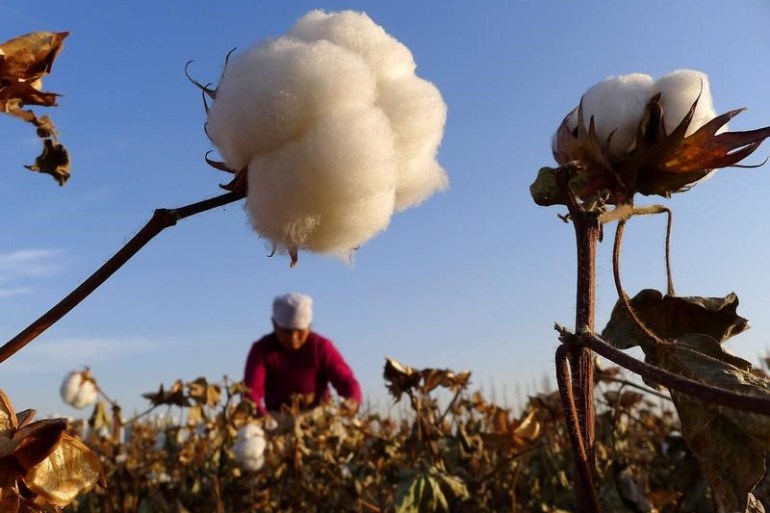China labour watchdogs face tough tradeoffs to keep access alive
The Better Cotton Initiative faced scrutiny over its work after partnering with Chinese firm accused of rights abuses.

BCI’s mission took it to Xinjiang, China, the homeland of the Uighur ethnic minority, where the NGO began working in 2013.
To assist its work on the ground in one of the world’s largest cotton-producing regions, BCI partnered with state-owned Xinjiang Production and Construction Corps (XPCC), a firm human rights groups and Western governments have accused of overseeing the arbitrary detention and forced labour of Uyghurs and other ethnic minority Muslims.
Despite mounting evidence of abuses detailed in NGO reports and media investigations in 2018 and 2019, BCI continued to operate in Xinjiang until October 2020.
The non-profit’s exit came several months after the United States Office of Foreign Assets banned transactions with the XPCC over its role in “serious rights abuses against ethnic minorities.”
In a statement that has since been removed from its website, BCI, which has headquarters in London and Geneva, said the “sustained allegations of forced labour and other human rights abuses” were a factor in its departure. Since then, BCI has declined to comment on its decision to leave Xinjiang, or why it took as long as it did to act.
“BCI has once never issued a public apology, nor has the chairman ever faced the media on this,” Brett Mathews, the editor of Apparel Insider and a garment supply chains expert, told Al Jazeera.
“Where was the due diligence? Why didn’t they do any research on the XPCC and its known links with all sorts of atrocities towards the Uighur population?”
BCI did not respond to a request for comment from Al Jazeera.
Beijing has denied allegations of rights abuses and genocide in Xinjiang and credited its “vocational education and training centres” with reducing violent extremism and poverty.”
Tough decisions and compromises
BCI’s case is one of the most dramatic examples of the tough choices and compromises labour and human rights watchdogs must face when operating in China under what critics says is the increasingly authoritarian rule of President Xi Jinping.
Rights groups including the Fair Wear Foundation, Workers Rights Consortium, Students and Scholars Against Corporate Misbehavior, and Amnesty International have all found themselves no longer able to continue working in mainland China or Hong Kong.
Those that remain are increasingly subject to strict controls and oversight that risk degrading their ability to identify or address human rights issues in global supply chains.
“Since 2015, the Chinese government has been targeting and cracking down on labour groups,” Johnson Ching-Yin Yeung, a Hong Kong-based campaigner with the Clean Clothes Campaign, told Al Jazeera.
“The risk factor has, in my understanding, deterred a lot of monitoring activities.”
Border controls and other travel restrictions, which have been ramped up under Beijing’s draconian “zero COVID-19” strategy, have made it increasingly challenging for foreign observers to even enter China or access, for example, facilities in Xinjiang considered to be high-risk for forced labour.
Even digital monitoring has become challenging, campaigners say, due to new data security laws that have already impacted the availability of information from the Automatic Identification System used to track ships.
During a 19-day period in October and November, the level of shipping data available for Chinese waters plunged by an estimated 90 percent, according to market intelligence firm VesselsValue.
No comments:
Post a Comment